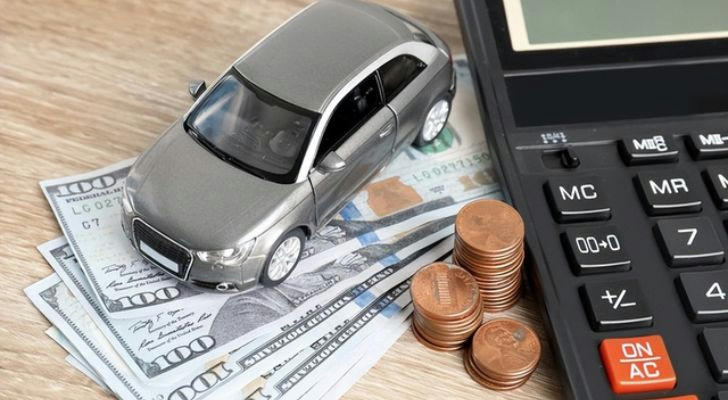Car Loans in 2025: Making the Best Decision
The automotive industry is continuously evolving, and deciding when to purchase a car—especially when financing is involved—has become more critical than ever. In 2025, car loans offer both opportunities and challenges for potential buyers. To make the best decision, it’s essential to understand the current state of car loans, including interest rates, market trends, and personal financial considerations.

The Current State of Car Loans in 2025
The car loan market in 2025 is influenced by several factors, such as interest rates, vehicle prices, and lending policies. Global economic fluctuations have led to cyclical adjustments in car loan interest rates. While rates have increased in the past, stable inflation and monetary policies suggest that rates may stabilize or even decrease slightly in the near future.
Vehicle prices are another crucial factor in the decision-making process. Technological advancements, including the rise of electric vehicles (EVs) and smart car features, have driven up the prices of new models. Additionally, supply chain dynamics and global demand continue to shape pricing trends, affecting when buyers choose to purchase.
To stay competitive, lenders are offering a variety of financing options and incentives to attract buyers. This dynamic market requires potential buyers to carefully analyze their options and make informed decisions.
Interest Rate Trends and What to Expect
Interest rates play a significant role in car loan decisions. Economists monitor factors like inflation rates, central bank policies, and global economic conditions to predict future trends.
In 2025, the interest rate environment remains relatively favorable for borrowers, though economic stability is still uncertain. Central banks are taking a cautious approach due to unpredictable inflation, which may result in car loan rates remaining stable in the short term. However, potential fluctuations mean buyers should stay informed and consider their options carefully.
Buyers are encouraged to keep an eye on economic forecasts, as securing a loan during a period of low interest rates can lead to significant long-term savings.

Should You Buy Now? Weighing the Pros and Cons
Deciding whether to take out a car loan in 2025 requires careful consideration of the advantages and disadvantages of buying immediately.
Advantages of Buying Now:
- Access to New Technology: Purchasing now allows you to benefit from the latest vehicle features and advancements.
- Attractive Incentives: Many manufacturers and dealerships offer incentives like cashback, rebates, or low financing rates, making cars more affordable.
- Favorable Interest Rates: Current rates may be more advantageous compared to potential future increases.
Disadvantages of Buying Now:
- Depreciation: New cars lose value quickly, which can affect resale value.
- Economic Uncertainty: Future economic changes could lead to better rates or deals.
- Limited Inventory: Supply chain issues may restrict the availability of certain models.
By carefully evaluating these factors, buyers can determine whether now is the right time to invest in a new car.
The Benefits and Drawbacks of Waiting
For those considering delaying their car purchase, there are several factors to consider.
Benefits of Waiting:
- Potential Price Drops: As supply chains stabilize, car prices may become more affordable.
- Technological Improvements: Advances in technology, especially in EVs, could lead to better and more efficient models in the future.
- Financial Preparation: Waiting allows time to improve credit scores, save for a larger down payment, and secure better loan terms.
Drawbacks of Waiting:
- Missed Opportunities: Current incentives and promotions may not be available later.
- Economic Risks: There’s no guarantee that economic conditions will improve, and interest rates could rise.
- Delayed Benefits: Postponing a purchase means waiting longer to enjoy the advantages of owning a new car.
Balancing these factors is key to deciding whether waiting aligns with your financial goals and personal preferences.

Evaluating Your Financial Readiness
Personal financial health is a critical factor in deciding whether to take out a car loan. Assessing your credit score and history helps determine your borrowing capacity and potential interest rates. A larger down payment can reduce the loan amount and often result in better terms, such as lower interest rates.
It’s also important to evaluate your budget to ensure you can manage monthly payments and ongoing vehicle expenses. Each individual’s financial situation is unique, so understanding your own circumstances is essential for making the right decision.
Making the Right Choice
Deciding whether to buy a car now or wait depends on a variety of factors, including market trends, interest rates, and your personal financial situation. While current incentives and advanced features may make buying now appealing, waiting could provide access to better technology or more favorable rates.
Taking a comprehensive approach—considering both external market conditions and your personal financial readiness—will help guide your decision. By aligning your timing with your financial strategy and lifestyle goals, you can confidently navigate the car loan market and make the best choice for your needs. Staying informed as conditions change will ensure you’re ready to seize opportunities and enhance your driving experience.
